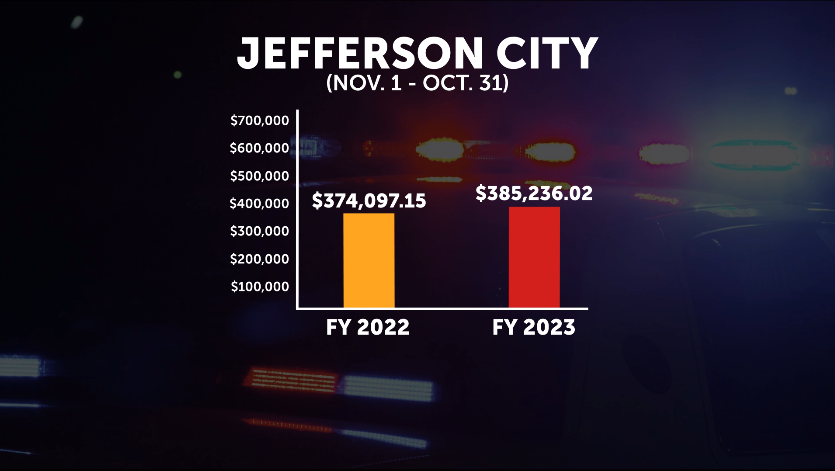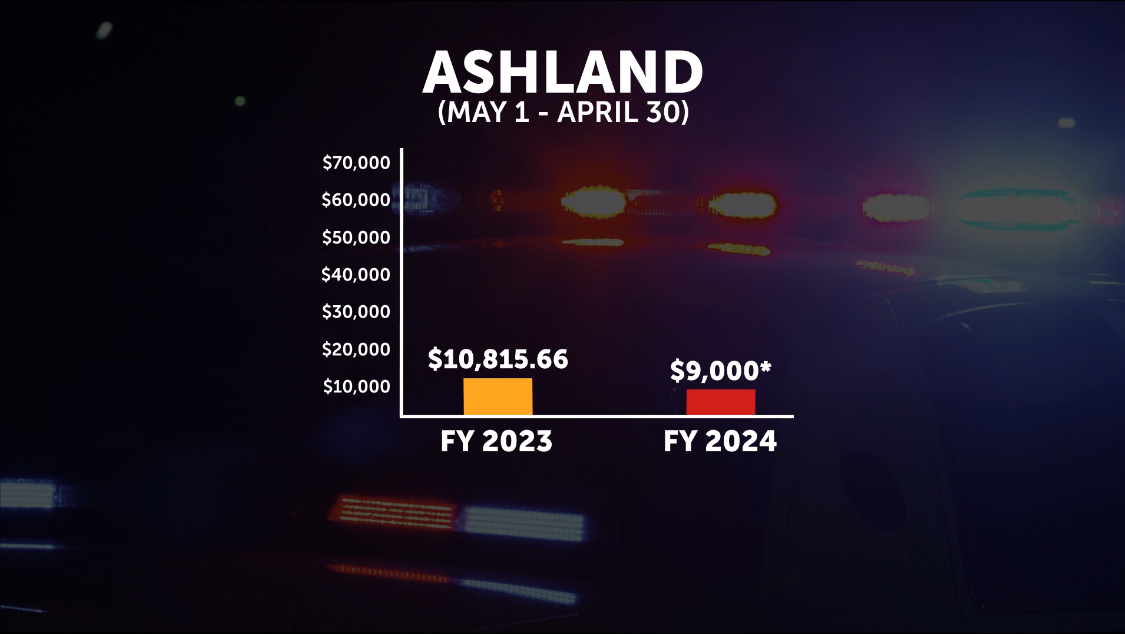Police overtime costs climbing as departments search for workers
COLUMBIA, Mo. (KMIZ)
Assistant Police Chief Lance Bolinger says the City of Columbia rarely has enough officers on duty to cover each of the city's 16 beats.
However, there's more to the story. The lack of preferred staffing for the Columbia Police Department means the department is forcing officers to work more overtime. Taxpayers are footing a 57% increase in overtime costs for fiscal 2023, which runs from Oct. 1, 2022, to Sept. 30, 2023. Financial records reviewed by ABC 17 News show the Columbia Police Department is responsible for 96% of all of the city's overtime costs at $646,901.62.
That translates to 44,459 overtime hours worked so far - 10,000 hours more than in all of fiscal 2022.
Bolinger said the overtime costs are a symptom of a department dealing with a short staff.
Bolinger said there are 41 vacancies at CPD. Thirty of them are in the patrol division, with seven recent hires going through the training academy. Department leaders are asking officers to work longer shifts to keep the city's patrol needs covered.
Two CPD sergeants have taken home more money this fiscal year because of overtime than two assistant chiefs.

“Overtime is a consideration, but we’re really trying to maximize our efficiency," Bolinger said. "We’re trying to make sure we provide the best customer service, best product, the safest schedule out there, more so than just manage the overtime on it.”
The rising costs are also found in other Mid-Missouri police departments. Jefferson City reported a 3% increase in police overtime costs for fiscal 2023. Overtime went up from $374,097.15 to $385,236.02. The patrol division drove the majority of that increase at more than $14,000 more this fiscal year than last fiscal year.

Ashland has nearly spent as much on overtime in the first four months of this fiscal year as it did all of last year. Records show the city has spent around $9,000 for police overtime since May 1, when fiscal 2024 started. The city spent $10,815.66 in fiscal 2023.
Interim Chief Scott Young said the lack of officers in Ashland is driving the overtime cost up. The city has just three full-time officers and four part-time officers.
"Officers spend more time in an 'on-call' status which garners 'on-call' pay and when they get called out they get overtime," Young said. "So, we’ve had to spend more this fiscal year on overtime. Should we ever have the number of officers our budget allows, we should spend more on salaries and less on OT. We are still within our overall budget."

Columbia
Columbia police officers are paid their regular salary for 80 hours of work over two weeks. Bolinger said patrol officers typically work four 12-hour shifts and one eight-hour shift in that period. Workers earn overtime for any time worked over 80 hours at a rate of one-and-a-half times their hourly rate.
City financial records show four sergeants collecting more than $16,000 in overtime this fiscal year. One officer and one airport safety officer have also collected more than $15,000 in overtime.
With 36 vacancies, Bolinger said the department has had to do things like extend patrol shifts to ensure coverage. He said that leaders are cognizant of the hours being worked.
"The lights are going to stay on at the Columbia Police Department going forward," Bolinger said. "We’re going to continue to show up and do the job, and there’s a lot of people doing a lot of good work. But we are pushing our employees and taxing them, and we force them to work a lot of overtime and we have them come in and do training on their day off. So it is a strain on our employees and our officers. And we see it, so we try to be aware of that and kind of prioritize what we need to do.”
The department can often force overtime onto workers through a "draft" process. Bolinger said some special events, such as the Fire in the Sky celebration on July 4, need special police coverage. The department first offers the special shifts for officers to sign up. If not enough people sign up, the department selects officers with the least overtime for the year to work.
LINK: City of Columbia payroll numbers
Bolinger said the department is seeing fewer people sign up for special events, including some shifts paid for by grants such as DWI or hazardous driving enforcement, because of the amount of forced overtime.
"There’s so much overtime that we need to work right now that we just have officers not signing up for it, because they need time off as well," Bolinger said.
Don Weaver, attorney for the Columbia Police Officers Association, said officers are doing their best to handle all the extra work.
“They’re having a good attitude, as much as they can, but they’re humans," Weaver said. "They’re losing out on sleep, they’re losing out on time with their family. They’re having to juggle childcare issues and everything else. And just as humans, they need some time off.”
Weaver said the city needed to focus more on retaining staff.
“Right now tenure is not rewarded very well," Weaver said. "Instead of getting raises predictably with the passage of time every year, three years, five years, that doesn’t occur. So now we lose officers to other agencies and other professions.”
Bolinger said recruiting and retaining staff needed to be a priority for everyone at the city.
The current contract between the city government and CPOA was ratified in 2020. The council is set to ratify a new five-year agreement with CPOA at its next meeting.
Weaver says the city needs to focus more on better pay for veteran officers to line up with the higher pay rates for newer recruits.
